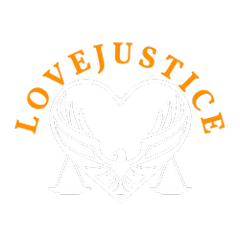VA and USDA Food Security Initiatives
About one in nine working age Veterans face food insecurity
April 21, 2024 By Randy Moler
VA’s Food Security Office and the U.S. Department of Agriculture (USDA) have partnered to improve food security, access to nutritious diets and healthful nutrition education for Veterans. This collaboration, facilitated by VA’s National Center for Healthcare Advancement and Partnerships (HAP), aims to advance Veteran well-being through enhanced food security measures.
Food insecurity among Veterans
The high prevalence of food insecurity among Veterans underscores the urgent need for action. Food insecurity as defined by the USDA is the limited or uncertain availability of nutritionally adequate and safe foods, a condition that disproportionately affects Veterans and is linked to both physical and mental health challenges. Approximately one in nine working age Veterans face food insecurity, emphasizing the importance of the partnership’s efforts.
Recognizing that food insecurity is a significant social driver of health, VHA is at the forefront of efforts to ensure that no Veteran struggles to provide adequate nutrition for themselves or their families.
“At HAP, we are committed to fostering partnerships that drive innovation and support for our Veterans,” said Georgi Bady, HAP health system specialist. “The collaboration between VA and USDA exemplifies our dedication to enhancing the well-being of those who have served our country. Together, we are working toward a future where every Veteran has access to nutritious food and the resources they need for a healthy, fulfilling life.”
Addressing food insecurity
The partnership’s activities include joint webinars with VA clinicians to educate them on legislation impacting Veterans’ access to food support. This collaboration aims to give VA clinicians the knowledge to better support and inform Veterans regarding laws affecting them. VHA and USDA also partner with Feeding America to provide information and support to address food insecurity among Veterans.
“The Food Security Office is addressing food insecurity among Veterans by helping VA clinicians support and inform food insecure Veterans by connecting them to resources both internal and externally. Together with our USDA partners, we are making strides in ensuring every Veteran has access to nutritious food and the support they deserve,” said Dr. Christine Going, senior advisor, VA Food Security Office.
Education and support
The upcoming spring webinar training with the USDA on The Special Supplemental Nutrition Program for Women, Infants and Children and Summer Feeding programs demonstrates the partnership’s commitment to ongoing education and support for Veterans.
VA resources
- The VHA Food Security Office (FSO): The FSO webpage details efforts to combat food insecurity among Veterans, emphasizing the provisions of resources through partnerships, data management and education to ensure Veterans have access to nutritious and affordable food.
- Nutrition and Food Services (NFS): The NFS website offers comprehensive nutritional services to Veterans and their families.
- VA Office of Health Equity: This resource provides an in-depth analysis of food insecurity among working-age Veterans.
USDA resources
- Veterans | USDA: The USDA Veterans webpage highlights initiatives supporting Veterans in agriculture, detailing how Veterans can leverage USDA resources for careers in farming, rural development and environmental conservation.
- Underserved and Veteran Farmers, Ranchers, and Foresters: This webpage focuses on the 2501 Program, which supports underserved and Veteran farmers, ranchers and foresters by enhancing their access to USDA programs and services.
- Food and Nutrition Security: This website outlines the USDA’s efforts to ensure all Americans have equitable access to healthy, safe and affordable foods for optimal health and promoting health equity through a variety of initiatives and partnerships.
- USDA Actions on Nutrition Security: An infographic outlining the USDA’s approach to ensuring all Americans have equitable access to healthy, safe and affordable foods for optimal health.
- Food Assistance Programs: Information on USDA food assistance programs including SNAP, WIC, the National School Lunch Program and others designed to help specific individuals and groups facing food insecurity.
